|
Exercises to help prevent Occupational Overuse Reference: Developed by Sentinel Supported by ACC Forward lean Wrist turns Finger spreads Rest elbows on thighs near the knees. Sitting upright with arms hanging loosely. Rest forearms on desk top or thighs. Let hands hang loosely, Relax shoulders.. Turn hands around one way until Stretch fingers apart as if trying to make Breathe deeply in the base of lungs. gentle stretching is felt. Hold them longer. Hold stretched for 3 counts then Stay relaxed in this position for 6-8 breaths. that position for the count of 5. relax hand for the count of 5. Repeat 3 times. Repeat 3 times in each direction. Arm shakes Head turns Shoulder circles Sitting upright, drop shoulders into a. With slight chin tuck, turn head to one Sitting upright , hang arms by sides. Roll relaxed position. Let arms hang side then to the other. Hold for the count shoulders in a backward direction. loosely. Gently shake wrist and arms of 5 at the end of each turn. Repeat 5 Repeat 10 times. to the count of 5. Repeat 3 times. times in each direction. Forward and back Chin tucks Side stretch with head turn Sitting upright with slight chin tuck, put hands on head Sitting upright, looking straight ahead. Sitting upright, chin tucked in, turn head with elbows forward. Bend head forward and allow Without looking down glide chin to a ¼ turn to one side. Place the hand on that the weight of the hands to add a little stretch. backwards to make a double chin. side on crown of head, hold seat with other Take hands off head and tip head backward as far as Hold for the count of 5. Repeat 5 times. hand. Bend head forward until a stretch possible. Hold for the count of 5 at the end of each is felt at the top of the shoulder blade. movement. Repeat 5 times in each direction. Hold for the count of 3. Repeat 3 times each side. Side stretch Flexor stretch Extensor stretch Sitting upright hold onto the seat with one hand. Hold one arm straight out in front, palm up. Rest one elbow on desk top with the thumb Place the other hand on top of head and gently tip Hold the front of the fingers with the other hand. of this hand near your nose. Resting the other head over to this side. Hold for the count of 5. Keeping fingers straight bend the wrist back. hand on the back of the first hand, bend the first Repeat 5 times each side. into; a definite gentle stretch is felt in the hand forward until a definite gentle stretch is felt forearm and wrist. Hold for 10 counts,, over the back of the wrist. Hold for 10 counts, then then relax stretch, Repeat 3 times. relax, Repeat 3 times. Back bending Backward stretch Shoulder bracing Standing with feet 30 cm (12" apart). Place Sitting upright with good lower back support, Standing, clasp hands behind back. Brace hands on hips with fingers facing the centre clasp hands together with arms straight shoulders back so that the shoulder blades of the back to support the lower spine. Bend above head. Keeping arms straight take move together. Hold at the limit of movement backwards as far as possible. Hold in this them backwards to stretch shoulders and for 5 counts. Repeat 5 times. positon for 10 counts. Repeat 5 times. upper back. Hold in stretched position for 5 counts. Repeat 5 times. If you are experiencing pain or discomfort doing your job out friendly physiotherapists and occupational therapists can help. Just contact us
Phone: 03 377 5280 Email: [email protected] 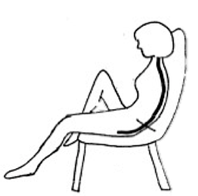 Seating people comfortably Many elderly and disabled people in care sit for long periods of time. Some are able to move themselves while others are not able to move without assistance. For those of us caring for the elderly and disabled we need to think carefully about how we seat those in our care. We need to consider things like:
Good posture is important to prevent back pain, encourage mobility, assist swallowing and prevent chest infections. When choosing a chair for a client it needs to be supportive to prevent them from slumping over. When sitting for long periods of time without being able to adjust your position, circulation to areas on a person’s bottom, legs and back can be cut off causing discomfort and, if left, pressure sores. When sitting for long periods of time without being able to adjust your position, circulation to areas on a person’s bottom, legs and back can be cut off causing discomfort and, if left, pressure sores. 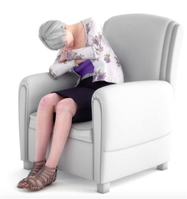 Pressure relief is important. Some chairs have pressure relief features built into them; we recommend these, especially for people who are unable to change their position. Alternatively pressure cushions can be used. Air filled pressure cushions (Rohos) can be problematic. They can be slippery causing a person to slide forward into a slumped posture. A slumped posture is uncomfortable, can make it hard to swallow and breathe effectively and take part in activities. The cushions raise the height of the seat, which may cause the feet to dangle, leading to discomfort under the thighs. While sitting it’s important to have feet on the floor or a footrest. For more information on pressure injuries follow this link. https://www.therapyprofessionals.co.nz/uploads/4/9/5/2/49523375/skin_injuries_caused_by_pressure.pdf Keeping people mobile as long as possible is in everyone’s best interests. If you are caring for someone who can still stand themselves up or better still walk safely, it’s important you choose a seat that encourages them to stand and get out of easily. This means their feet must be flat on the floor, the chair has armrests at the right height to push up from and the seat surface is firm enough to wriggle forward. 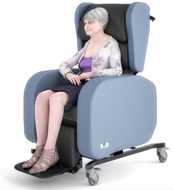 The ideal seat for a person, maintains an upright posture with their bottom back in the chair and hips at a 90 degree angle. The chair needs to support the spine, thighs with a gap behind the knees and the armrests should support the arms with relaxed shoulders. Feet need to be flat on the floor or supported on a footstool. For more information on choosing a seat follow this link https://www.therapyprofessionals.co.nz/uploads/4/9/5/2/49523375/choosing_a_comfy_armchair__.pdf
If you need some help seating the elderly or disabled in your care our friendly Physiotherapists and Occupational Therapists can help just contact us at Therapy Professionals. Ph: 03 3775280 Email: [email protected] Arthritis Most of us have heard of arthritis, however, did you know there are about 140 different types of arthritis? The most common are Osteoarthritis, Rheumatoid Arthritis and Gout. The causes of the different types of arthritis vary, however, the thing they have in common is there is an inflammatory response in the joints causing swelling, pain, stiffness and joint damage. Arthritis can affect all age groups with the elderly being most affected, generally with Osteoarthritis. Osteoarthritis 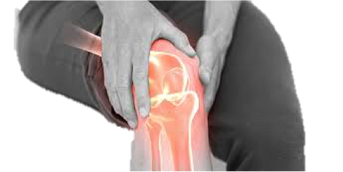 Osteoarthritis is caused by ‘wear and tear’ on the joints cartilage. Cartilage is on the end of our bones protecting our bones from damage, it act like a cushion. Over time the cartilage breaks down and may completely go. Injuries to joints often accelerate the breakdown of joint cartilage. It generally affects the feet, hands, knees, hips and lower back. Most people over 65 will have some osteoarthritis. 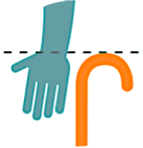 Rheumatoid Arthritis Rheumatoid arthritis is an autoimmune disease, which means the immune system attacks the tissues of the body - in this case the linings of the joints. It also affects other parts of the body. There may be periods where the disease is active or not active and it may burn itself out after a number of years. It affects all age groups - in childhood rheumatoid arthritis is called juvenile arthritis Gout 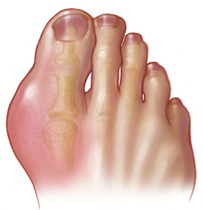 In gout uric acid crystals form in and around the joints, commonly around the big toe, and may move to the knees, elbows, wrists, and fingers. It causes excruciating pain and swelling. Uric acid is a by-product of digesting a protein called purine, which the body isn’t excreting. Being overweight, genetics, taking certain medications, sugary drinks, alcohol, eating too much liver, meat and seafood, and existing kidney disease may cause uric acid to stay in the body. An attack can come on suddenly. To prevent joint and kidney damage, it needs to be treated quickly. Treatments
The aim of treatment is generally to reduce the swelling, pain and damage to the joints. For more information: https://www.arthritis.org.nz/forms-of-arthritis/ https://www.health.govt.nz/your-health/conditions-and-treatments/diseases-and-illnesses/arthritis https://www.healthline.com/health/arthritis If you need help to get mobile, exercise or you need dietary advice our friendly physiotherapists and dietitians can help just contact us. Ph: (03) 377 5280 Email: [email protected]  Food for a Healthy Heart It's never too late to look after your heart, improve your health, and get the most out of life. Here are some guidelines to help you choose the best foods for your heart: Fruit and Vegetables Have fruits and/or vegetables at every meal and for most snacks. Grains and Starchy Vegetables
 Protein – meat, poultry, legumes, fish, seafood and eggs
Dairy Products
Oil, Nuts and Seeds Drinks
General tips
If you are struggling to change your diet Therapy Professionals friendly Dietitian can help just contact us. Phone: 03 377 5280 Email: [email protected] 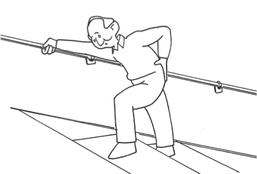 Are My Elderly Parent’s Coping? As our parents move in to Shakespeare’s ‘Sixth stage of man’ many of us in our middle age are busy with our careers and bringing up children. We often take our parents for granted and forget they are ageing. If we see them regularly, we may not notice subtle changes or if we live elsewhere and rarely see them, we may get a shock at their decline between visits. Compounding this, most parents don't want to be a 'bother' and aren't good at telling their adult children they need help. It can be a shock to see our parents slowing down and not coping. We may have no idea how to deal with their changing state. Some of us respond by ignoring or minimising the situation, while others will behave more like a bossy parent. More often than not, even with the best intentions, we don't know when and how to respond. In my experience with my own mother and observing others it's best to start talking with your parents early in their retirement, and keep talking about all the different scenarios that may happen as they age, good and bad. For each scenario, find out the options for care or help and discuss these with your parents. Most importantly, find out what they want to happen in each case. It may help to start by arranging a power of attorney, and who will be responsible for their health, welfare and finances should they become incapable of making those decisions. A change in the ability to manage one’s affairs could happen suddenly after a health event, like a stroke, or slowly as a result of dementia. It’s best to be prepared. Become informed with your parents on how ageing may affect them and how they may look after themselves to extend their independence and enjoyment of life. There is plenty of information on the Internet to help with this. I suggest you look at local reputable resources. Regularly check in with your parents, and ask them if there is anything they are struggling with. If so, discuss alternative ways of managing the problem area. Be observant, and if you notice there has been a change in, say, the standard of house keeping, tactfully discuss this with them. Again, it is helpful if you've discussed at an earlier time how to manage these changes and how best to broach the subjects with them. 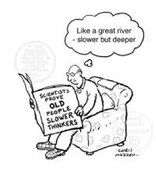 Changes you may notice include, a drop in:
It is well worth having these hard conversations with your ageing parents as it helps take some of the stress out of their decline and allows you to more readily enjoy their final years. If your parents are struggling at home our friendly therapists may be able to help them maintain their independence. Just contact us at Therapy Professionals Ph: 03 3775280 Email: [email protected] ‘The sixth age shifts Into the lean and slipper’d pantaloon, With spectacles on nose and pouch on side; His youthful hose, well sav’d, a world too wide For his shrunk shank; and his big manly voice, Turning again toward childish treble, pipes And whistles in his sound. Last scene of all, That ends this strange eventful history, Is second childishness and mere oblivion; Sans teeth, sans eyes, sans taste, sans everything.’ William Shakespeare – As you like it. “The seven stages of man.” |
AuthorShonagh O'Hagan Archives
July 2024
|



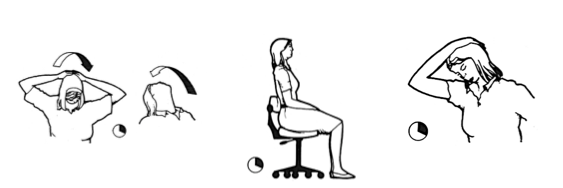


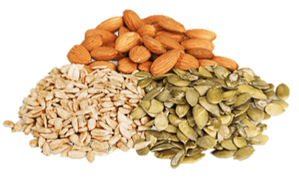
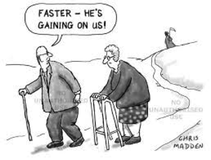
 RSS Feed
RSS Feed